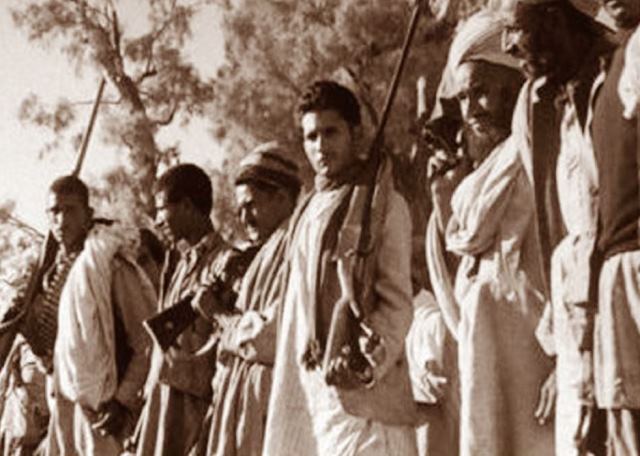A Vital Lesson in Peace and Tolerance
“In the annals of history, the town of Baramulla, nestled in the heart of Jammu and Kashmir, bears witness to a haunting chapter that continues to reverberate through time. The Baramulla Tragedy of 1947, marked by a violent invasion and plunder by tribal forces, serves as a poignant reminder of the paramount importance of peace, justice, and the preservation of human life.

In the turbulent days of October 1947, as India grappled with the tumultuous Partition, Baramulla became a focal point of violence and sorrow. Nestled amidst the breathtaking landscapes of Jammu and Kashmir, this town bore witness to an onslaught of hatred and brutality.
Armed with guns, knives, and axes, tribal forces descended upon Baramulla, swiftly overwhelming the town’s modest police presence. What ensued was a descent into chaos, with the invaders looting and setting ablaze the homes and businesses of Hindus and Sikhs. Tragically, these acts of destruction were accompanied by heinous crimes, with innocent people falling victim to rape and murder.
The exact death toll remains an agonizing mystery, with estimates ranging from several hundred to several thousand lives lost. Yet, the profound impact of this tragedy on Jammu and Kashmir and the broader subcontinent is undeniable.
As we remember the Baramulla Tragedy, we must not simply dwell on the darkness of the past but instead seek the enlightenment it offers for our present and future.
Baramulla’s tragedy underscores the dire consequences of unresolved conflicts. The enduring legacy of violence that plagued the region for decades serves as a stark reminder of the urgent need for peace and reconciliation. In an era marked by numerous conflicts and disputes, Baramulla teaches us the immeasurable value of diplomacy, dialogue, and understanding as instruments for resolving differences and preventing further bloodshed.
This tragedy starkly reminds us of the need for religious tolerance and harmonious coexistence among diverse communities. The violence in Baramulla was driven by religious and communal divisions, emphasizing that hatred and bigotry can lead to catastrophic consequences. Embracing diversity isn’t just a moral imperative but a practical necessity for building a harmonious society.
The Baramulla Tragedy underscores the paramount importance of safeguarding human lives, regardless of one’s background or beliefs. It compels us, as global citizens, to ensure the protection and well-being of every individual. The events in Baramulla should serve as a stark reminder of our collective responsibility to work towards a world where such atrocities are inconceivable.
Decades after the Baramulla Tragedy, the quest for justice and acknowledgment of the victims’ suffering persists. This reaffirms that justice is not a one-time event but an ongoing process that must continue until every victim is acknowledged, and every wrong is made right.

The Baramulla Tragedy remains a painful and poignant chapter in the history of Jammu and Kashmir, serving as a stark reminder of the turmoil that often accompanies moments of profound political change. Yet, it also provides us with an opportunity to reflect on the past and extract valuable lessons for the present and future.
The enduring legacy of Baramulla calls us to action, urging us to prioritize peace, tolerance, and the preservation of human lives. As we remember the victims of this tragedy, we should channel our collective efforts towards building a world where such horrors are nothing but echoes of the past. In their place, let us strive for a future characterized by understanding, empathy, and lasting peace.”


